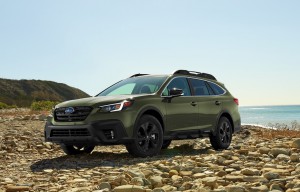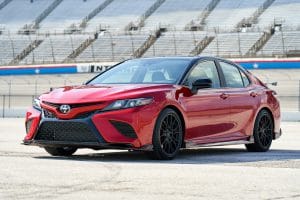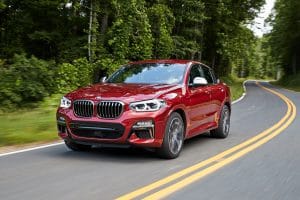New vehicle sales in the U.S. fell during September despite the Labor Day holiday typically being one of the biggest sales weekends of the year. This, however, that didn’t hold as the holiday sales were rolled into August and this month has three fewer selling days that last September.
Toyota and Hyundai took some of the biggest hits of the month. Japan’s largest automaker saw sales fell 16.5% to 169,656 vehicles in September. The company was hurt by slow sales of its Highlander and Tacoma models, as well as falling demand for sedans like Camry and Prius.
Hyundai’s U.S. sales slid 9% to 51,951 automobiles last month, due to lower volumes of its Elantra and Sonata sedans. Meanwhile Nissan also suffered last month with its sales dropping 17.6% to 101,244 vehicles due to poor sales of its Sentra sedan and Rogue SUV.
(New Vehicle Sales Expected to Drop in September)
General Motors, Ford and Fiat Chrysler do not report sales monthly, but quarterly. They will report those on Wednesday. Automakers are expected to see a sales increase for the third quarter. A drop in the average interest rate to 5.7%, according to Edmunds.com analysts.

Subaru sales were down 9.4% last month, but the company is still expecting another record sales year.
Subaru of America Inc. reported it sold 51,659 vehicles in September, a 9.4% decrease compared with year-ago results. The automaker chalked it up to a low vehicle supplies and three fewer selling days compared to September 2018. However, it’s going to be a good year for the automaker in the U.S.
“2019 is already turning out to be another record year for Subaru thanks to the excellent efforts of our retailers,” said Thomas J. Doll, president and CEO, Subaru of America Inc.
“Due to the rapid sell-down of the last generation Legacy and Outback models, our yearly, month-over-month sales streak of 93 consecutive months came to an end in September. We look forward to robust sales in October and are on target to achieve our 700,000-vehicle sales goal for 2019, marking 12 consecutive years of sales increases.”
Volkswagen sales fell 12% to 26,947 units, but that was driven by declines in its passenger car offerings, which were down 30%. Sales of the Tiguan and Atlas were up significantly while its SUV sales were up overall 15% last month.
(“Consumers Do Not Want to Buy or Drive” EVs? That’s Not the Story in Europe)
Other automakers also struggled in September. Honda division continued the trend of sales declines with a 13.7% drop to 102,827 units during the month. American Honda’s luxury unit, Acura, wasn’t able to offset the loss as its sales fell 17.9% to 11,098 units.
“Following the best sales month in our company’s history in August, the Honda brand delivered balanced sales performance across our passenger car and light truck offerings,” said Henio Arcangeli Jr., senior vice president of Automobile Sales at American Honda Motor Co. “As we enter the final quarter of 2019, we are expecting a strong finish to the year for both the Honda and Acura brands.”
Japanese luxury vehicle sales also face tough times last month. Lexus took a 23.9% hit last month – including a 14.4% slide in SUV sales – down to 18,860 vehicles. Additionally, Infiniti saw its sales decline by a whopping 43.9% to 7,031 units.
Conversely, European luxury brands enjoyed sales gains. BMW, Mercedes-Benz, Volvo and Audi all saw sales jump las month. BMW sales totaled 27,467 vehicles in September, an increase of 6% over the 25,908 vehicles sold in September 2018.
“With September’s results, we have now achieved positive sales growth in 24 of the past 25 months,” said Bernhard Kuhnt, president and CEO, BMW of North America. Sales were driven primarily by the BMW X3 (5,943 vehicles) and BMW X5 (4,339 vehicles) Sports Activity Vehicles, as well as the all-new seventh generation BMW 3 Series sedan (4,303 vehicles).
Mercedes-Benz USA reported September sales of 27,433 Mercedes-Benz models, a 4.8% increase over September 2018. The automaker’s volume leaders were the GLC, GLE, and C-Class model lines. The GLC led totals with 6,840 vehicles followed by GLE with sales of 4,862. The C-Class rounded out the top three with 4,073 units.
(Fed Rate Cut Unlikely to Help Auto Buyers)
Volvo reported U.S. sales of 9,323 vehicles for the month, which was an increase of 7% from the same period last year. It was the company’s best September in 13 years, and marks nine months of year-over-year growth.


